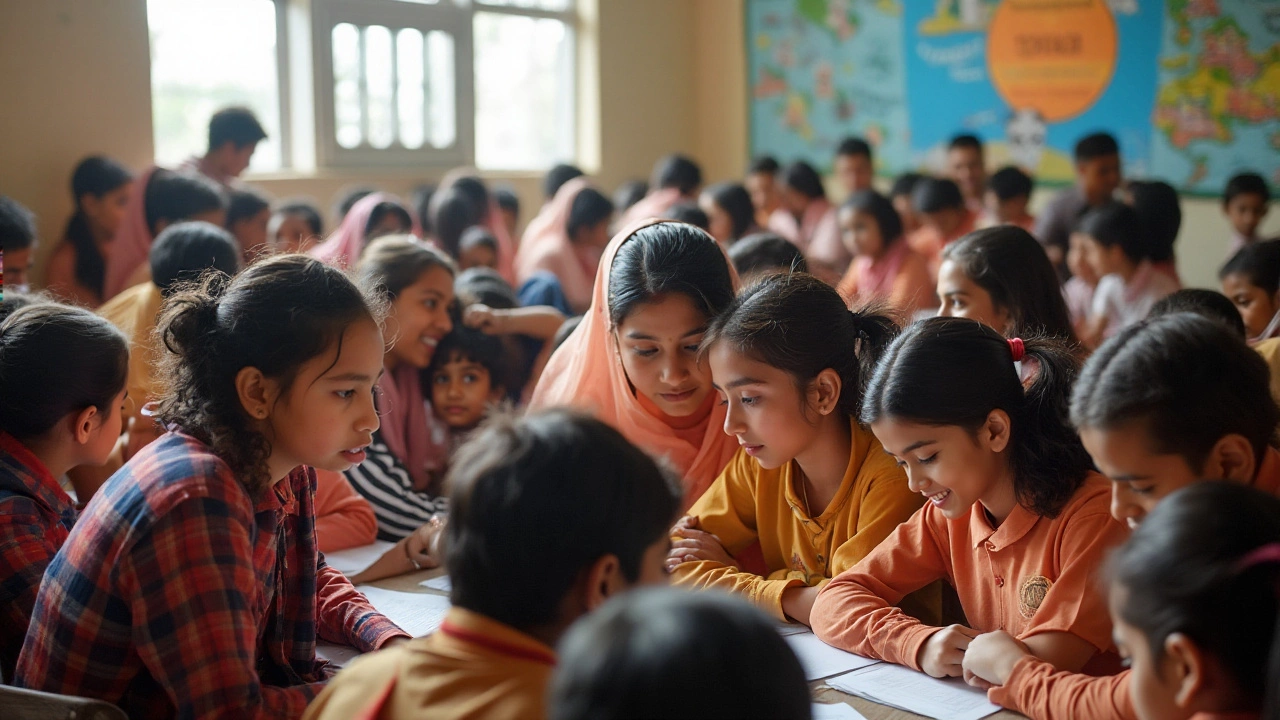CBSE Education – Your Practical Guide to India's Biggest School Board
Did you know more than 20 million students sit under the CBSE umbrella every year? That’s a huge chunk of India’s schooling system, and it’s why parents, teachers, and students keep asking the same questions: What makes CBSE different? How do I pick the right CBSE school? And how can I ace the board exams?
In this guide, we’ll break down the essentials without the jargon. You’ll get a quick snapshot of the board’s structure, learn why many families prefer CBSE, and walk away with actionable tips for study planning, time management, and choosing the best school for your child.
Why Choose CBSE?
First up, the obvious: CBSE is a national board, so its syllabus is uniform across states. That means a student moving from Delhi to Bangalore won’t have to relearn everything. The curriculum focuses on concepts rather than rote memorisation, which helps students build strong problem‑solving skills—especially useful for competitive exams like JEE and NEET.
Another plus is the continuous assessment model. Besides the big year‑end exams, CBSE conducts periodic tests that let teachers spot weak spots early. This keeps the pressure low and learning steady. Plus, the board regularly updates textbooks to match the latest science and technology trends, so students are not left behind.
Tips for Success in CBSE Exams
When the board exams roll around, a solid plan makes all the difference. Start by gathering the official CBSE sample papers and marking schemes—these are free on the board’s website. Use them to practice time‑bound answers, then compare your work with the marking guide to see where you lose marks.
Next, master the NCERT books. Most CBSE questions come directly from these texts, so reading the chapters, solving the end‑of‑chapter questions, and revisiting key formulas will cover the bulk of the syllabus. Create a simple revision schedule: allocate 30 minutes each day to a subject, and boost that to an hour as exams approach.
Don’t forget the power of peer study. Form a small group with classmates, meet once a week, and quiz each other on tough topics. Explaining a concept to someone else reinforces your own understanding, and you’ll pick up shortcuts you might have missed.
Lastly, keep your health in check. A well‑rested mind works faster. Aim for 7‑8 hours of sleep, stay hydrated, and take short breaks during long study sessions. A quick walk or a few stretches can reset your focus and improve recall.
Choosing a CBSE school? Look for a campus that balances academics with extracurriculars. Schools that offer labs, sports, and clubs tend to nurture well‑rounded students—something the board values in its assessment. Check the school’s past CBSE results, but also talk to current parents about teaching quality and support services.
To sum up, CBSE education offers consistency, concept‑based learning, and a clear path to national competitive exams. By focusing on NCERT basics, using official sample papers, and staying organized, you can turn the board exams into a manageable challenge rather than a stress monster.
Ready to get started? Grab the latest NCERT books, set up a study calendar, and pick a CBSE school that feels right for you. With the right approach, success in CBSE is within reach.
Top-Ranked CBSE Schools in India: A Comprehensive Guide
In India, schools affiliated with the Central Board of Secondary Education (CBSE) are often sought after for their robust curriculum and comprehensive educational approach. With numerous CBSE schools across the country, identifying the most popular ones can be challenging. This article delves into the factors contributing to a school's popularity, highlights some renowned CBSE institutions, and provides tips for selecting the right school. Learn more about how these institutions stand out through their reputations, academic performances, and extracurricular activities.
read more